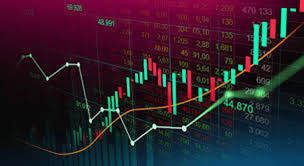
Understanding Forex Trading Accounts: A Comprehensive Guide
Forex trading accounts are foundational for anyone looking to participate in the foreign exchange market. Whether you are a novice or an experienced trader, understanding the different types of forex accounts can help you make an informed decision. Choosing the right account is crucial for your trading success. To learn more about various brokers and services available, you can visit forex trading account Trading Brokers. This guide will delve into the essentials of forex trading accounts, their types, and what to look for when selecting a broker.
What is a Forex Trading Account?
A forex trading account is an online trading account opened with a forex broker that allows individuals to buy, sell, and hold positions in currency pairs. These accounts provide traders with the necessary tools and resources to conduct foreign exchange transactions. Depending on the broker, these accounts can come with different features, commissions, leverage options, and spreads.
Types of Forex Trading Accounts
Forex brokers typically offer several types of trading accounts, each designed to cater to different trading styles, levels of expertise, and capital requirements. Below are the most common types:
1. Demo Accounts
Demo accounts are designed for beginners to practice trading without the risk of losing real money. These accounts provide virtual funds, allowing traders to familiarize themselves with the trading platform, test strategies, and understand market mechanics. It’s an ideal way to gain confidence before transitioning to a live account.
2. Standard Accounts
Standard accounts are popular among retail traders. These accounts typically require a minimum deposit, and trading involves standard lot sizes. Standard accounts usually provide access to various trading instruments, competitive spreads, and leverage options. They are suited for traders who are comfortable with market dynamics and are looking to trade with real capital.
3. Mini Accounts
Mini accounts allow traders to trade mini lots, which are smaller than standard lots. This type of account is often preferred by those who want to trade with lower capital requirements, making it accessible for beginners. Mini accounts allow for greater flexibility and lower risk, which can be appealing during the learning phase of trading.
4. Micro Accounts
Micro accounts function similarly to mini accounts but allow for even smaller lot sizes. However, they usually require a lower initial deposit, making them ideal for absolute beginners or those who wish to trade very small amounts. Micro accounts are a great way to test the waters of forex trading without exposing oneself to significant financial risk.
5. ECN Accounts
Electronic Communication Network (ECN) accounts are designed for advanced traders who prefer direct market access. These accounts provide quick execution of trades and often feature lower spreads by connecting traders directly with liquidity providers. However, ECN accounts may require higher minimum deposits and charge commissions on each trade.
Advantages of Forex Trading Accounts
Having a forex trading account comes with several advantages, including:
- Access to Leverage: Forex trading accounts offer traders the opportunity to use leverage, allowing them to control larger positions with a smaller amount of capital.
- Diverse Trading Instruments: Most forex accounts provide access to various forex pairs and other financial instruments, including commodities and indices.
- Market Liquidity: The forex market is known for its high liquidity, enabling traders to enter and exit positions with ease.
- 24/5 Trading: The forex market operates 24 hours a day, five days a week, allowing traders to trade at their convenience regardless of their time zone.
Choosing the Right Forex Broker
Selecting the right forex broker is crucial for your trading success. Here are some factors to consider:

1. Regulation
Ensure that the broker is regulated by a reputable financial authority. Regulated brokers must adhere to strict guidelines, which provide additional protection for traders.
2. Trading Platforms
Consider the trading platforms offered by the broker. Popular platforms like MetaTrader 4 and MetaTrader 5 provide powerful tools for analysis, trading, and automated trading strategies.
3. Spreads and Commissions
Understand the spreads and commissions associated with trading. Some brokers offer tighter spreads, which can significantly impact your overall trading costs, especially for frequent traders.
4. Customer Support
Look for a broker that provides responsive customer support. Efficient customer service can help resolve issues quickly and ensure a smooth trading experience.
5. Educational Resources
Many brokers offer educational resources, including webinars, tutorials, and market analysis. These can be particularly beneficial for beginner traders looking to enhance their knowledge.
Getting Started with Forex Trading
After selecting a broker and opening an account, here are steps to get started with your forex trading journey:
1. Fund Your Account
Once you have opened your forex trading account, you will need to fund it. Most brokers offer various funding methods, including bank transfers, credit cards, and e-wallets. Choose a method that is convenient for you.
2. Develop a Trading Strategy
Before placing any trades, it is essential to develop a trading strategy based on your financial goals and risk tolerance. Consider factors such as technical analysis, fundamental analysis, and market trends.
3. Start Trading
After conducting thorough research and analysis, it’s time to place your trades. Monitor your positions and be prepared to adjust your strategy based on market conditions.
Conclusion
Forex trading accounts are the gateway to participating in one of the largest financial markets in the world. Understanding the various types of accounts and selecting the right broker can significantly enhance your trading experience. Whether you’re just getting started or looking to refine your strategies, having the right knowledge and tools will set you on the path to trading success. Always remember to trade responsibly and continuously educate yourself on market developments and trading practices.

Comentarios recientes